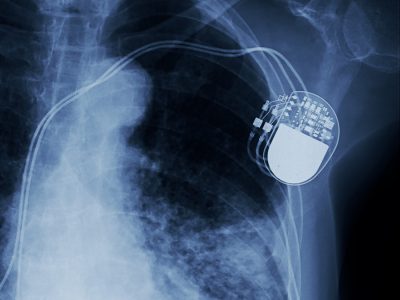 Your heart health can affect how you feel and how you live, but if you’re suffering from certain conditions, a pacemaker may be able to help you live better and healthier. The heart health experts at AMS Cardiology have come up with 5 signs that indicate you may need life with a pacemaker, as well as what to expect before, during and after it’s implantation.
Your heart health can affect how you feel and how you live, but if you’re suffering from certain conditions, a pacemaker may be able to help you live better and healthier. The heart health experts at AMS Cardiology have come up with 5 signs that indicate you may need life with a pacemaker, as well as what to expect before, during and after it’s implantation.
Lightheadedness and Dizziness Are a Constant Occurrence
Although feeling lightheaded and dizzy can be caused by several conditions such as low blood pressure, low blood sugar and hyperventilation, it can often be an indication that the heart is not beating as it should. If your heart is not beating properly, a pacemaker can help relieve these symptoms.
You’re Experiencing Severe Fatigue
When a heart is not able to pump blood throughout your body it can leave you feeling severely tired and fatigued, regardless of how you are sleeping at night or how exhausting your daily activities are. Just as lightheadedness and dizziness can be caused by other conditions, so can fatigue. If you’re experiencing an uncharacteristically excessive need to sleep—or if the thought of doing anything seems too exhausting to you—then you should schedule an appointment with your cardiologist as soon as possible.
Chest Palpitations and Pounding Are Frequent
Palpitations and pounding in the chest are signs that should be taken seriously due to the fact that it could be the sign of an irregular heartbeat condition that may be able to be controlled by a pacemaker. Although not all irregular heart rhythms are serious—you won’t know how severe your condition is until you speak with your physician.
Your Doctor Diagnoses You With Bradycardia
An occasionally slow heart rate—a heart rate that is below 60 beats per minute—is not necessarily something to be concerned about. But if this is common for you, your doctor may have you tested for bradycardia. If the tests show that you have this condition, your doctor will most likely suggest getting a pacemaker so that you can live with a healthier heart rhythm.
Prescribed Medications Are Slowing Down Your Heartbeat
Certain prescription medications such as digoxin, which is prescribed for those living with heart disease, can result in a slower heartbeat. Whether your heart rate is already too slow, or your dosage of one of these medications is increased, a pacemaker can help prevent decreasing your heart rate to an unsafe rate.
What to Expect With a Pacemaker Procedure
Here’s what you can expect before your pacemaker procedure, during and after it:
- Before the procedure – In most pacemaker surgeries you will be awake during the procedure and it will take a few hours. An intravenous line may be placed to give you a medication that will help you relax. Typically, local anesthesia will be used to numb where the incision area; which will be cleaned with a medical-grade soap.
- During the procedure – Flexible and insulated wires will be placed into a major vein located under or near your collarbone which will then be directed to your heart via x-ray images. One end of the wire will be secured in your heart; the other will be secured to the pulse generator— this is typically implanted below your collarbone’s skin.
- After the procedure – In most cases, you will stay in the hospital for at least one day after the procedure. During this time your pacemaker will be programmed to meet your needs. Because pacemakers can send data such as your heart rate and rhythm, how its operating and its battery life, a majority of items can be checked remotely. Although you will most likely be able to live your life as normal months after your procedure, your doctor may suggest that you decrease your physical activity for the first month.
Whether you think you need to schedule a consultation for a pacemaker or you’re overdue for a visit with a cardiologist, AMS Cardiology is here for you! Contact us at 215-517-1000 or visit our website today!
